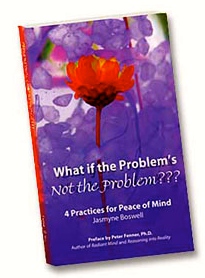“And by the way, everything in life is writable about if you have the outgoing guts to do it, and the imagination to improvise. The worst enemy to creativity is self-doubt.” ~Sylvia Plath
Is The Force With You?
Writing a book is similar to starting any project. It takes planning, preparation, focus, commitment, and most of all passion. If you implement all five points, the odds of flourishing are in your favor. (For readers not writing a book but working on other projects, change some of the words below and the model will fit)
First of all, shake off any notion that you have to know exactly what you’re going to do from the get-go. You may start writing your memoir, a novel or a how-to-book but at some point, it may just start writing you. Ideas will come when you least expect them and a myriad of concepts and data will arise vying for your attention. Be open to the process and have fun.
My suggestions might vary depending on whether you plan to publish using the conventional route, self-publish or write simply for your own pleasure, but what follows should help get you started. For planning and preparation, there are definite steps you can follow.
Planning:
- What is your vision for the writing? What are your objectives? Will you write in first person, second or third person? Who is your audience?
- How much time do you have to write? Are you going to stick to a schedule or fit it in whenever possible?
- How many pages will your book have? (Between 200 and 300 pages is recommended for your first book and is the size of most books on bookstore shelves.)
- Are you going to write on your own or work with an editor/coach? Do you plan to publish? (This last question may evolve, but if you know, you can focus your work accordingly.)
- Do you have/want a deadline? Do you need a schedule for writing, particular supplies, or financial assistance if you’re planning to take time off to write?
Answering these questions can kick-start your process and get your juices flowing. You’ll then have the beginnings of a framework to get started.
Preparation:
- How will your book be organized? Make a list of the major events you’ll write about.
- Create an outline – Preface/Introduction/Chapters/Epilogue, etc.
- Write a short summary for each section of the outline.
- Gather your writing tools – computer, paper, ink cartridges, research notes, pictures, journals, etc., and have them at your disposal.
- Decide when you’ll start, your best time of day for writing, and have fun!
These first two steps are pretty easy to define. When it comes to focus and commitment, you have to dig a bit deeper. If you reflect on past performances, you’ll see your patterns—those that work for you and those that work against you. Being aware of these tendencies can help you avoid falling into self-defeating traps.
Focus can be measured in part by looking at your personal history. Are you easily distracted or do you concentrate well? Do you work best on your own or with a support system? Do you work better when it’s still and quiet or do you need background noise? If you’re ready to take on the challenge and commit to your project, you probably have completed other projects and are familiar with your M.O. Do what works best and be open to changing what doesn’t. This can mean getting help as well.
Remember – insanity is thinking you’ll get different results by doing the same thing over and over again.
Commitment can be a tricky word or concept and a lot of people take two steps back and make the sign of the cross to ward it off. Others see commitment as a sense of freedom. Once they commit, they’re free to create. And some find it easier to break commitments they make to themselves and harder to break ones they make to another. I have students who take my writing classes to discipline themselves to write. What will give you the ability to see something through– like writing a book–to completion? This is worth exploring before you hit writers’ block and shelve the idea altogether.
And then there’s Passion. Your passion gives you the perseverance to keep on keeping on when the going gets rough. I’m not talking about the initial excitement of starting something new. I’m talking about the deeply rooted desire that keeps you going until you see your story in print.
Timing is everything. The universe has a way of supporting our endeavors when we’re ripe. To know “right timing” we need to use our “sixth sense,” our intuition. If the time feels right, go for it. If it doesn’t, going through all the steps becomes a struggle, your passion fizzles and you find little joy. If the timing doesn’t feel right but you want to get started, take small steps forward and you’ll know if it’s time when you can barely think of anything else, and your creativity starts overflowing.
Enjoy!



